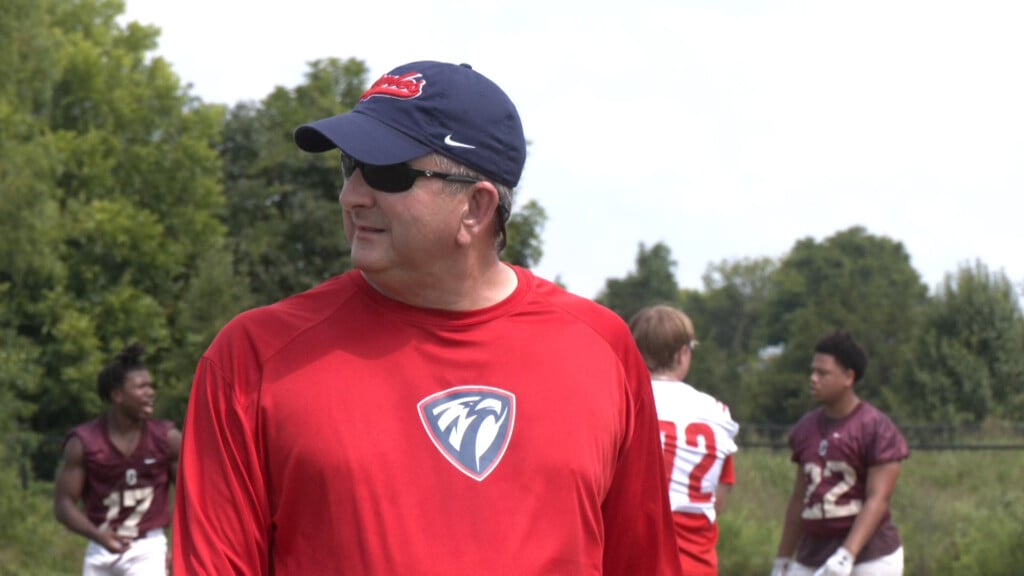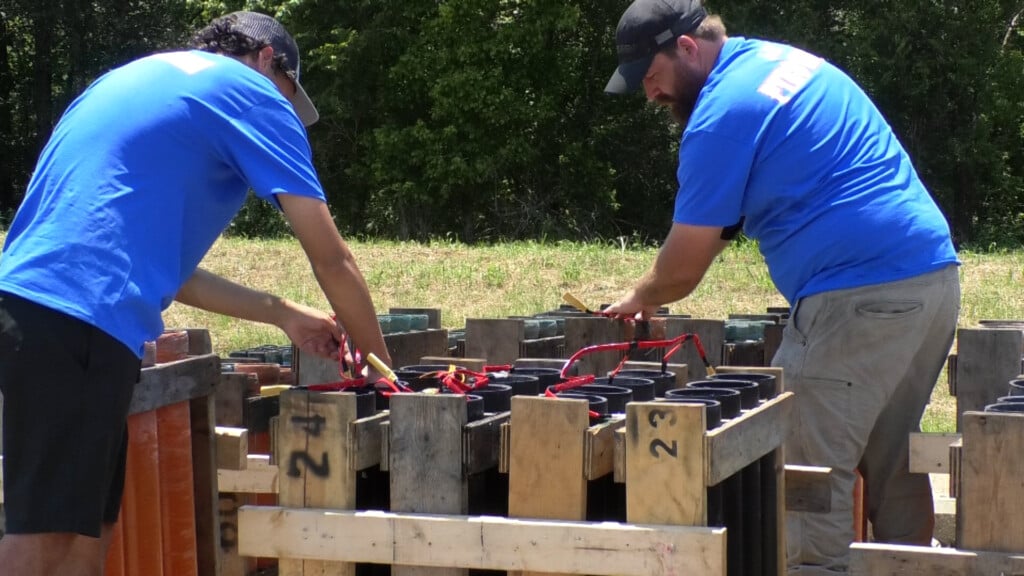Ole Miss Women’s Track And Basketball Programs Face 3 Year Probations
NCAA RELEASE
A former University of Mississippi women’s basketball assistant coach, a former director of basketball operations and two women’s basketball student-athletes acted unethically when they committed academic fraud to ensure the student-athletes were eligible to enroll at the university, according to a decision issued by a Division I Committee on Infractions panel. In addition, they each provided false and misleading information during the investigation. The former head women’s basketball coach failed to monitor the two staff members’ activities surrounding the two student-athletes’ online coursework.

Additionally, a former assistant coach and a former head coach for the women’s track team acted unethically when they provided false and misleading information during the investigation into impermissible recruiting tryouts and contacts. The former head track coach failed to promote an atmosphere for compliance in his program by not reporting the assistant track coach’s recruiting activities to the university.
Penalties in the case include three years of probation and show-cause orders for a number of individuals. During the show-cause period, if any of the individuals are hired by an NCAA school, that school must follow the terms of each of their respective show-cause orders. The university self-imposed women’s basketball and women’s track recruiting restrictions, women’s basketball scholarship reductions, a women’s basketball postseason ban and a prohibition of two-year college transfers in women’s basketball.
In order to resolve the women’s track and women’s basketball violations efficiently, the panel separated the case earlier this year when new potential allegations came to light in the football program, which required further investigation. The panel did not and will not review any information related to the football program until the university and enforcement staff have completed the investigation. The NCAA will not comment further on the status of the ongoing investigation.
“When both the university and enforcement staff informed the panel that they needed more time to further investigate the potential allegations in the football program after the enforcement staff delivered its notice of allegations, the panel separated this case to be fair to the university, and the involved individuals in the women’s basketball and track programs,” said Greg Christopher, the panel’s chief hearing officer and athletics director at Xavier University. “The panel maintains its commitment to fairness and processing infractions matters efficiently. Our panel’s review was limited to only women’s basketball and track. No football-related materials were part of our record, and we will only take up the football allegations once the investigation has concluded.”
Women’s basketball findings
The former women’s basketball head coach delegated recruiting and compliance responsibilities to the former assistant coach with little supervision. That action resulted in the former assistant coach and former director of basketball operations completing and submitting coursework for five online classes that two prospective student-athletes needed to complete their associate degrees.
The former assistant coach paid for and enrolled one of the student-athletes in two summer online classes. She also instructed the other student-athlete to enroll in three online courses at three different schools. The former assistant coach and the former director of operations then completed all of the coursework for the three online courses for one student-athlete and the majority of the other student-athlete’s coursework. The former director of operations and assistant coach also arranged for an acquaintance to pose as a proctor for an exam required for one of the student-athletes. The proctor provided the exam in advance to the former assistant coach, who then forwarded the exam to another individual. The student-athlete received a grade on the exam; however, she admitted she did not go to the testing site and did not take the exam.
During the investigation, the university found emails from the former director of operations to one of the student-athletes that included completed coursework. As the university reviewed the case, the emails began disappearing. It later found that the former director of operations deleted his personal emails related to the case and had logged in to the student-athlete’s junior college account and deleted emails related to the investigation.
The former assistant coach and former director of operations violated NCAA ethical conduct rules when they arranged for the fraudulent academic credits, stated that they were not involved in the academic fraud and tried to cover up their activities. The two student-athletes acted unethically when they initially stated they completed their own coursework. One of the student-athletes also denied that the former assistant coach paid for her courses and in a later interview admitted to deleting text messages between herself and the former assistant coach.
The former head coach failed to monitor the two staff members’ activities surrounding the two student-athletes’ coursework. The former head coach knew the two student-athletes faced academic challenges, but did not supervise his staff members in monitoring the student-athletes’ academic status. His lack of questioning, delegation and reliance on the former assistant coach and former director of operations allowed them to operate unchecked and commit academic fraud.
“While the panel believed it is reasonable for a coach to delegate recruiting responsibilities to his staff members, we also believe that those responsibilities cannot remain unchecked,” Christopher said. “It is important for schools to hire staff members that are committed to following the rules and stress the importance of ensuring that their programs share that same commitment. It is particularly important for head coaches with new coaching staffs to establish these principles at the beginning of their tenure. It is equally important that schools provide head coaches with the support and resources necessary to establish the proper tone of compliance within their programs.”
Women’s track program findings
Two former assistant track coaches impermissibly contacted student-athletes at their respective previous schools. One of those schools contacted the university to notify the former head track coach about the recruitment activities. The former head coach then told the former assistant coach to end recruitment of the student-athlete, but did not report the impermissible activity to the university. The former head coach also was aware of the other former assistant coach’s impermissible recruiting activity at her previous school.
One of the two former assistant coaches also arranged for 20 women’s track and cross country prospects to attend official team practices during paid visits and observed the prospects as they ran with the women’s cross country student-athletes during weekend practices. NCAA rules do not allow coaches to observe prospects participating in activities during official visits. The former head coach was aware that the runs took place and that prospects were present in the same location as the team members.
The former assistant coach who observed prospects during the weekend runs acted unethically when she stated during initial interviews that she took precautions to avoid having prospects run with current student-athletes.
The former head coach did not promote an atmosphere for compliance in his program when he did not report the former assistant coaches’ recruiting activities to the university and did not monitor the weekend runs with prospects and student-athletes. He also acted unethically when he stated he was not aware of the former assistant track coaches’ recruiting activities.
Penalties and corrective actions
Penalties and corrective actions imposed by the panel include:
- A three-year probation period from Oct. 7, 2016, through Oct. 6, 2019.
- Six-year show-cause orders for the former assistant basketball coach and the former director of basketball operations from Oct. 7, 2016, through Oct. 6, 2022. During that period, if either individual is employed by an NCAA school in an athletically related position, school officials must appear with the individual before a Committee on Infractions panel.
- A two-year show-cause order for the former head basketball coach from Oct. 7, 2016, through Oct. 6, 2018. Any NCAA school employing him in an athletically related position during that time must appear with him before a Committee on Infractions panel.
- One-year show-cause orders for the former head track coach and the two former assistant track coaches. During that period, if either individual is employed by an NCAA school in an athletically related position, school officials must appear with the individual before a Committee on Infractions panel.
Self-imposed penalties by the university included:
- A reduction in the number of women’s basketball scholarships by two to 13 during the 2013-14 academic year.
- A reduction in women’s basketball official visits by four, from a total of 12 to eight, during the 2012-13 academic year and by two, from 12 to 10 total, during the 2013-14 academic year.
- A reduction in women’s track and field official visits by 30, from 60 to 30 total, during the 2014-15 academic year.
- A one-year women’s basketball postseason ban during the 2012-13 academic season.
- A reduction in women’s basketball recruiting-person days by 20, from 100 allowable days to 80, during the 2012-13 academic year.
- A reduction of women’s track and field recruiting-person days by 14.5, from 63.5 allowable days to 49, during the 2014-15 academic year.
- A prohibition of women’s basketball staff initiating phone calls with prospects and their families for eight weeks during the spring 2013 semester.
- A prohibition of the women’s basketball program from signing two-year college transfer prospects during the 2012-13 and 2013-14 academic years.
Members of the Committee on Infractions are drawn from NCAA membership and members of the public. In addition to Christopher, the members of the panel who reviewed this case are Carol Cartwright, president emerita at Kent State University; Bobby Cremins, former head basketball coach at Georgia Tech; Joel Maturi, former University of Minnesota, Twin Cities, athletics director; Eleanor W. Myers, committee vice chair and law professor at Temple University; Larry Parkinson, director of enforcement for the Federal Energy Regulatory Commission; and Jill Pilgrim, attorney in private practice.





Leave a Reply